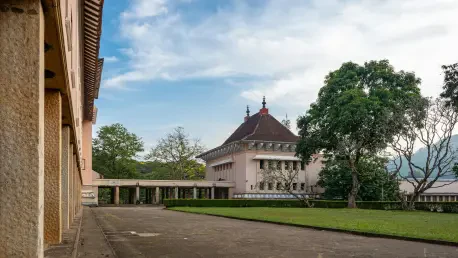Central Asia stands at a critical juncture as climate change intensifies challenges like desertification, water scarcity, and energy insecurity across the region, highlighting the urgent need for innovative solutions. With fragile ecosystems and economies heavily reliant on natural resources, a groundbreaking initiative has emerged to address these pressing issues through the establishment of a new scientific and educational hub in Kazakhstan. This collaborative effort aims to unite regional and international expertise to develop sustainable strategies for environmental resilience. Based in Almaty, this institute represents a beacon of hope for tackling the complex interplay of land degradation, water management, and ecological preservation. By fostering partnerships and leveraging advanced research, it seeks to pave the way for actionable policies that align with global sustainability goals. This development sparks curiosity about whether such an endeavor can truly transform the region’s approach to climate challenges and set a precedent for others to follow.
A New Hub for Sustainability and Collaboration
In a significant step toward combating environmental threats, the Kazakh-German Nexus Institute has been launched as a pioneering center for research and education in Central Asia. Situated at the Kazakh National Agrarian Research University in Almaty, this initiative brings together prominent institutions like the Kazakh-German University and the National Academy of Sciences of Kazakhstan, alongside support from Germany’s Hanns Seidel Foundation. The institute’s mission is to create a dynamic platform where local and international experts can collaborate on pressing issues such as sustainable resource management and climate adaptation. By focusing on critical areas like water and land use, as well as energy efficiency, it aims to develop practical solutions tailored to the region’s unique challenges. This partnership not only strengthens bilateral scientific ties but also positions the institute as a key player in addressing the broader ecological crises that threaten Central Asia’s future stability and growth.
Beyond its foundational goals, the Kazakh-German Nexus Institute emphasizes the integration of modern tools and methodologies to enhance environmental monitoring and policy-making. Digital technologies for tracking natural resources are set to play a pivotal role in ensuring data-driven decisions, while professional training programs will equip a new generation of specialists with the skills needed to confront climate-related issues head-on. The involvement of German expertise, through technical and financial support, further enriches this endeavor by facilitating joint research and strategic planning. Educational platforms introduced through this collaboration aim to foster a culture of innovation and sustainability among students and professionals alike. This focus on capacity building and knowledge transfer is expected to yield long-term benefits, creating a ripple effect that could influence regional approaches to ecological challenges and inspire similar initiatives in neighboring countries grappling with comparable threats.
Building Resilience Through International Dialogue
The momentum for sustainable development in Central Asia gained significant traction during a recent international forum held in Almaty, titled “Central Asia’s Sustainable Development Goals in a Changing Global Order.” Organized by a coalition of academic and scientific bodies, including the Kazakh-German University and Germany’s University Alliance Ruhr, the event convened representatives from academia, government, and business sectors, alongside international organizations. Discussions centered on shared priorities such as climate resilience, energy transitions, and the integration of scientific research into public policy. The forum underscored the importance of cross-border cooperation in addressing the region’s environmental challenges, highlighting the need for unified strategies to manage mountainous and glacial ecosystems. This gathering served as a catalyst for the Nexus Institute’s initiatives, reinforcing the urgency of collaborative action in a region vulnerable to the impacts of global warming.
Further outcomes from the Almaty forum pointed to ambitious plans for the future, including the creation of tailored roadmaps for sustainable value chains and enhanced academic mobility. Research exchanges and technology transfer were identified as critical components for building regional capacity, while frameworks for climate risk financing emerged as a novel approach to safeguarding vulnerable communities. These discussions emphasized the interconnectedness of environmental, economic, and social factors in achieving lasting resilience. By fostering dialogue among diverse stakeholders, the forum laid the groundwork for innovative policies that could transform how Central Asia navigates its ecological challenges. The Nexus Institute, bolstered by such international engagement, stands poised to lead these efforts, ensuring that scientific advancements translate into tangible benefits for the region’s population and landscapes over the coming years.
Forging a Path to a Sustainable Future
Reflecting on the strides made, the establishment of the Kazakh-German Nexus Institute marks a defining moment in Central Asia’s battle against environmental degradation. The collaborative spirit showcased during the Almaty forum amplified the potential for meaningful change, as stakeholders from varied backgrounds united under a common goal of sustainability. The detailed focus on resource management and professional training, supported by international expertise, demonstrates a comprehensive approach to tackling complex issues like desertification and water scarcity. Looking ahead, the institute’s commitment to integrating research with policy offers a promising blueprint for regional progress. Continued investment in technology transfer and cross-border partnerships will be essential to sustain this momentum. As Central Asia navigates an uncertain environmental landscape, scaling up such initiatives and fostering broader dialogue could ensure that resilience and innovation remain at the forefront of the region’s development agenda.









